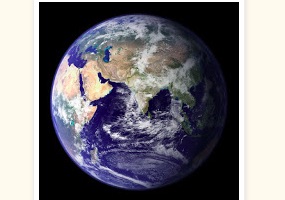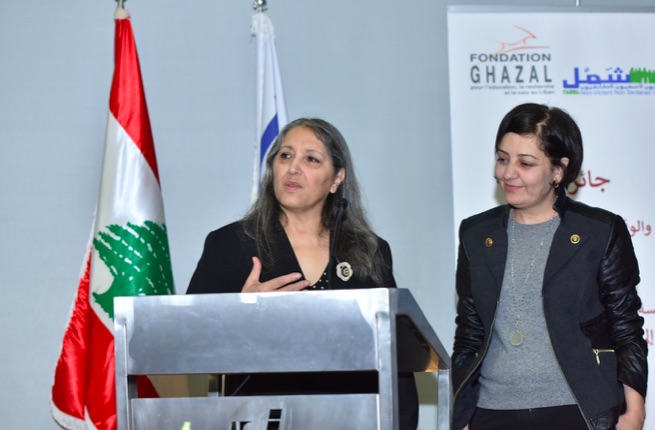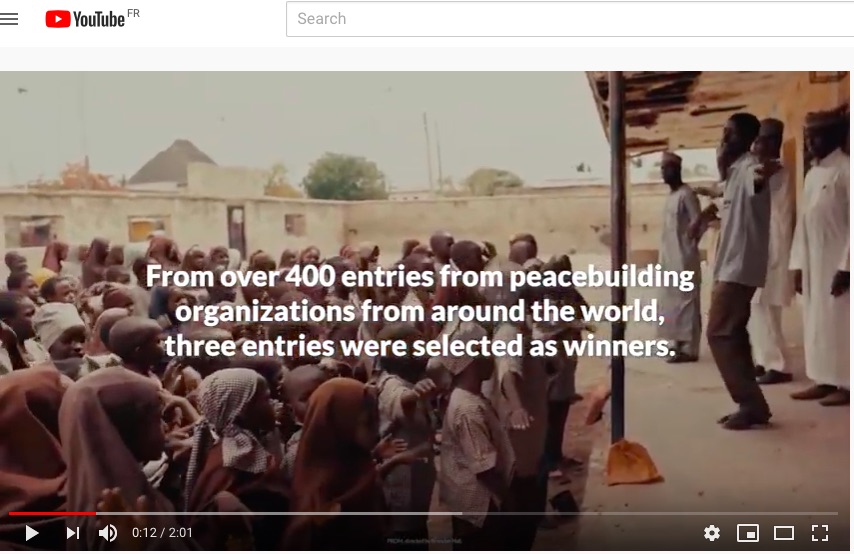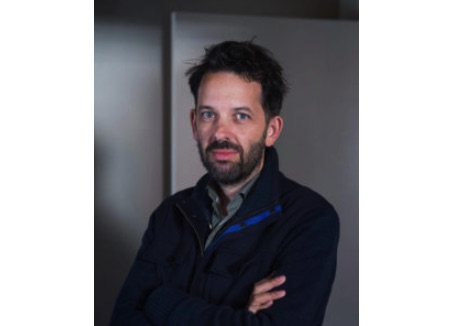FREE FLOW OF INFORMATION
A survey by CPNN
The following 21 actions in 14 Arab and Middle Eastern countries were listed in Google during the week of September 21-28 under the key words “International day of peace” “journee internationale de la paix” and اليوم الدولي للسلام. This also includes a few actions listed on the websites of International Cities of Peace and the event map of the international day of peace,
About 20 actions are listed on the maps of One Day One Choir and Montessori schools singing for peace, but there is no indication which took place this year and which took place only in previous years
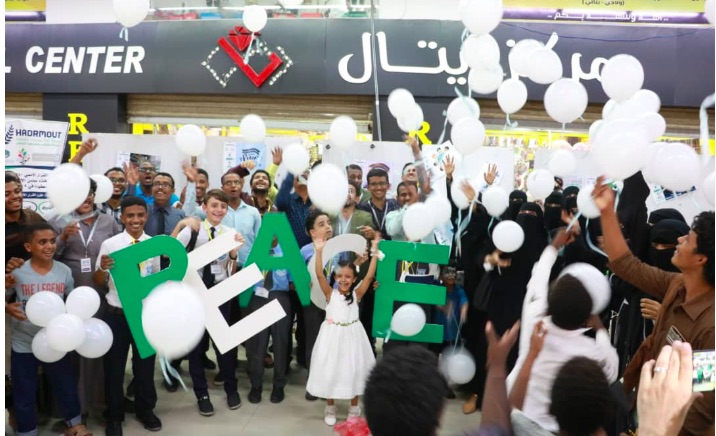
The Day was especially meaningful in Yemen which continues to be torn by war. This photo is from Hadramaout where white is considered the color of peace.
Here are excerpts from articles about the actions, many of them translated from Arabic.
BAHRAIN :
The Bahrain Authority for Culture and Antiquities organized a concert on Saturday on the occasion of the International Day of Peace presented by “Musicians Without Borders” band with the artist and oud player Saad Jawad. Musicians Without Borders is a living example of harmony between different peoples and cultures. It consists of professional musicians of different nationalities and countries: Argentina, Bahrain, India, Ukraine, Egypt and Iraq. The band performed a different set of songs and songs belonging to different cultures such as: Hana Al Bahrain, Tango Al Oud, Ayam Zaman, Flamenco Al Oud, in addition to performing songs by famous artists such as: Fayrouz, Ammar Al
MINYA, EGYPT
The Bader Peace Building Project at the Association of Muslim Families for Social Development, in Minya, organized a peace event with the environment on Saturday, coinciding with the celebration of “World Peace Day”, which falls on September 21st every year. The activities, carried out by the project team, the youth and the youth, included cleaning works, planting trees and paintings on the walls. Dr. Hani Ahmed El-Sayed, Director of the Bader Project at the Muslim Families Association, said that the activities of today are aimed at promoting peace with the environment in cooperation with the Office of Humanitarian Services of the Coptic Catholics.
TEHERAN, IRAN :
The seventh edition of the International Festival of “Art for Peace” has been inaugurated in Tehran, the Iranian capital, on the occasion of International Peace Day. . . . There are about 200 works in different categories of photography, painting, installation, sculpture, video art, graphics and cinema. Each artist, with their own approach, tries to convey to the audience their concern for peace.
SULAIMANI, KURDISTAN, IRAQ :
Coexistence and religious tolerance in the Kurdistan Region was celebrated during an International Day of Peace festival in Sulaimani province on Saturday. People from the autonomous Kurdistan Region and different parts of the world celebrated and participated in the International Day of Peace by showcasing artwork, presenting cultural foods, and handmade, embroidered items.
HA-ATSMA’UT GARDEN, JERUSALEM, ISRAEL :
A short march, a prayer for peace and ceremony.
BEIRUT, LEBANON :
Wataniya – The Association for the Protection and Investment of Arab Culture and the Association of Alumni of Beirut Arab University organized a poetic evening for the poet Saleh Al-Desouki on the occasion of the International Day of Peace. The program included the presentation of words on behalf of the two associations inspired by the occasion, and then presented Desouki a variety of poems and poetry. The evening of the media presented Islam Hajja, and in the end the poet was honored and memorial photos were taken in the presence of the management of the two associations and a range of academic, cultural, political and social activities and activists in civil society.
NAQOURA, LEBANON :
UNIFIL today marked the International Day of Peace amidst a ceremony at its headquarters in Naqoura, South Lebanon, with its head and Force Commander Major General Stefano Del Col joining the global call for climate action for peace.
TRIPOLI, LEBANON :
On the International Day of Peace, +Peace, Pathfinders for Peaceful, Just and Inclusive Societies, and Impact:Peace launched the Peace in Our Cities Campaign, with 11 mayors and local officials representing over 15.8 million people from Colombo, Sri Lanka; Nairobi Municipality, Kenya; Cali, Colombia; Guadalajara, Mexico; Tripoli, Lebanon; Bangui, Central African Republic; Durban, South Africa; Escobedo, Mexico; Kumanovo, Macedonia; Kibera County, Nairobi, Kenya; and Chaguanas, Trinidad and Tobago, pledging to work towards halving violence in their cities by 2030. The campaign calls on mayors, local authorities, civil society, the private sector, and other partners to sign the pledge and join the growing movement to transform global violence.
UBARI, LIBYA :
See link for a video about the revival of World Peace Day in Ubari
MAURITANIA :
In commemoration of the International Day of Peace, the Union of Mauritanian Writers organized a major literary evening under the slogan: Literature in the service of civil peace, attended by a group of intellectuals, ministers, MPs and writers. The evening started with a speech by the President of the Union, Dr. Mohamed Ould Azahna, expressing his satisfaction with the choice of this slogan to confirm the role played by literature and writers in promoting and promoting a culture of peace, praising the support given by the State to consolidate civil peace. In turn, Mr. Yahya Ould Ahmedou, in charge of a mission to the Ministry of Culture, Handicrafts and Relations with Parliament, gave an opening speech on behalf of the Minister, in which he thanked the Union of Mauritanian Writers for the great effort exerted by strengthening national cohesion through this activity. After the official opening, the audience listened to a speech delivered by Dr. Mohamed El Amine Ould El Ketab, President of the Supreme Council of the Union, in which he explained the social and political dimensions of peace and the interest of the international community in the culture of peace, in which civil society organizations and unions play a pivotal role. Parliamentary MP Mohammed Bawi Sheikh Mohammed Fadhil made an important intervention on the relationship of literature to civil peace, and continued the literary dimension of the Koran peace in general.
MARRAKECH, MOROCCO :
On the occasion of World Peace Day, on 21 September, the Moroccan Association for Human Rights called for the separation of religion from the state because the exploitation of religion and its use in political conflicts poses a threat to democracy and peace. . . The statement called for work to combat hate speech, violence and extremism, and spread a culture of dialogue and coexistence and respect for pluralism and acceptance of difference. The Association appreciated the priorities set by the United Nations to reduce the threat of carbon emissions to peace in the world by 2050, as reflected in the taxation of polluters and not on people; stop subsidizing fossil fuels; and stop building new coal plants by 2020; a green economy instead of the gray economy. It also deplored the “drastic rise in the world arms budget,” denouncing Morocco’s huge budget in this field, amounting to 4% of GDP, while not providing the most basic requirements of life for its citizens and citizens of employment, housing and health services, as well as good and generalized education.
(Survey continued in right column)
Question related to this article:
What has happened this year (2019) for the International Day of Peace?
(Survey continued from left column)
MOGADISHU, SOMALIA :
The Somali Green Peace Association will hold an event in Mogadishu, focussing on peaceful coexistence between people and plants.
KHARTOUM, SUDAN :
Celebrating the International Day of Peace on 21 September, people from Nuba Mountains tribes performed traditional dancing and wrestling in a public square in al-Haj Yousif, eastern Khartoum. Hailing from South Kordofan, one of the most war-ravaged areas in Sudan, the Nuba Mountains people have used to mark peace occasions in Khartoum to consolidate call for peace prevailing and to show that values of peace and peaceful co-existence are the core of their culture. They performed group dances with the participation of men and women accompanied by rhythms of traditional music instruments such as the drums, rebaba (lute-like instrument) and lyre. Nuba wrestling, on the other hand, became inseparable part of popular celebrations as it has gained popularity country-wide.
KHARTOUM, SUDAN :
Several NGOs launched a campaign to spread the culture of peace and peaceful coexistence, promote the value of tolerance and celebrate the Sudanese identity in the name of “I am peace”.. . . a couple of events and programs have been carried out in conjunction with World Peace Day. On Friday, the Union Writers and Artists performed a theatre performance under the slogan of Theatre for Peaceful Coexistence. The coexistence initiatives included the maintenance of schools and the distribution of a school bag and treatment programs and assistance from psychologists, A journalist, Amin Sanada told Radio Dabanga that the peaceful coexistence initiative included a match between Arab Sukarta and Wadi Nyala in Port Sudan stadium.
ZALINGEI, CENTRAL DARFUR, SUDAN :
On 22 September 2019, UNAMID peacekeepers mingled with hundreds of residents of Zalingei town and its suburbs to celebrate the International Day of Peace under the theme: “Climate Action for Peace”. Hundreds of vendors, retailers, students and pupils, native administration, women and youth groups as well as Government officials and peacekeepers (Civilians, Military and Police), attended the event which included peace march, music festival, peace and traditional songs, cultural performances by peacekeepers and local cultural groups and a drama show about the Mission’s transition period and its eventual exit by end of June 2020. . . . UNAMID peacekeepers in Golo temporary operating base also celebrated the day in collaboration with Golo community leaders, government officials, youth, women and students.
MANBIJ, SYRIA :
The events organized by the Council on the occasion of the International Day of Peace included the second plastic art exhibition and other cultural events in Manbij city, launched by the Directorate of Arts and Theaters of the Committee of Culture and Art in the city in coordination with the Council of Women. In the presence of dozens of people and members of the institutions of the democratic civil administration in Manbij and its countryside, the events began with a minute of silence, amid the banners at the exhibition with slogans saying: “Peace is a right, not a dream, yes to peace, not to war, together to build sustainable peace.” Then a number of speeches were delivered . . . followed by a theatrical performance entitled “To Europe”. It talked about the migration of Syrians to Europe and their suffering, and their eagerness to return to the land where they were born and lived, as the show showed the importance of adhering to customs, traditions and cultures, and urged the displaced to return and serve their country. This was followed by children’s singing. At the end of the events, the second Fine Art Exhibition opened and the audience toured the paintings and drawings expressing peace, freedom and the right of peoples, children and women to live in peace.
QAMISHLI, SYRIA:
A group of civil society organizations carried out a stand in front of the UN building in the city of Qamishli, northeastern Syria, on the occasion of the International Day of Peace. The co-chair of Human Rights Organization in the Jazira region, Aven Juma, read the statement to a group of participants, noting that eight years of the Syrian war caused the destruction and destruction of the environment, infrastructure and air pollution. The statement, which spoke of what the weapons used in the Syrian war, even internationally prohibited, have done, appealed to international powers and relevant organizations on the International Day of Peace to “support dialogue, the rule of law and social justice”. The statement concluded with an invitation to the forces and international organizations to support the Assembly’s demands.
ABU DHABI, UNITED ARAB EMIRATES :
A number of non-Muslim places of worship were lit up green in celebration of 2019 International Peace Day. The ceremony will be hosted by the Department of Community Development, the governing body of places of worship in the Emirate of Abu Dhabi, under the slogan “An Appeal to Harmony” and in conjunction with International Day of Peace. The places of worship will be illuminated until Sunday, September 22, in celebration of the efforts of the Community Development Department. Representatives of the places of worship emphasized that this act reflects the country’s determination to support the entire community, highlighting tolerance in the UAE, while praising the country’s environment that welcomes various cultures and religions.
ADEN, YEMEN :
A group of southerners for peace organized this morning at the Emirates Sky Hotel in Aden, events for the International Day of Peace under the slogan “No war – all partners in peacemaking”. The press conference was attended by the southern elite in the provisional capital of Aden, academics of Aden University, heads of civil society organizations, jurists, activists, lawyers, media, journalists and legal persons. The conference presented a number of items adopted by the Southern Group for Peace, which are trying to apply measures for peace on the ground after coordinating with a number of parties, listening to the different points of view of all present and discussing the various things needed in order to normalize peace. Ms. Radhia Shamsheer, President of the Southern Group for Peace pointed out that our country is going through more dangerous turns that are complicated by the current regional situation It calls for the combined efforts of all national peace-loving forces to seek peace, security and stability throughout Yemen.
HADRAMAOUT, YEMEN:
The Hadramawt Youth Forum for Peace held a public event entitled Hadramout Land of Peace Friday 20 September at the Hyper Square coinciding with the International Day of Peace funded by Youth Without Borders and in partnership with modern knowledge schools and Hadramout International Schools Al-Gha’aleya started with a silent scene titled War and Peace presented by students of modern knowledge schools in Mukalla. It aims to educate people about the effects of war and the need to promote peace.
TAIZ, YEMEN :
In commemoration of World Peace Day and in partnership with NFOD, the Better Future Initiative launched the Open Day of Drawing in Taiz with the participation of a group of young art students from the Faculty of Arts . . . . The drawings contain writings expressing peace, coexistence, brotherhood, tolerance, expressions calling for dialogue and tolerance among all groups, sects, parties and groups, giving priority to the interest of the nation, renouncing sectarianism and violence, and calling on all to work together for lasting peace every inch of the land of Yemen. The Open Day of Drawing is one of the activities of the Risha Salam project, which aims to normalize the situation and promote the ways of coexistence and peace in Taiz through the use of the arts to spread the culture of peace, tolerance and harmony . . . the project aims to deliver a message that Taiz, despite its siege and war, is still a city that loves life, art and beauty and is still a city of love, coexistence and peace.

